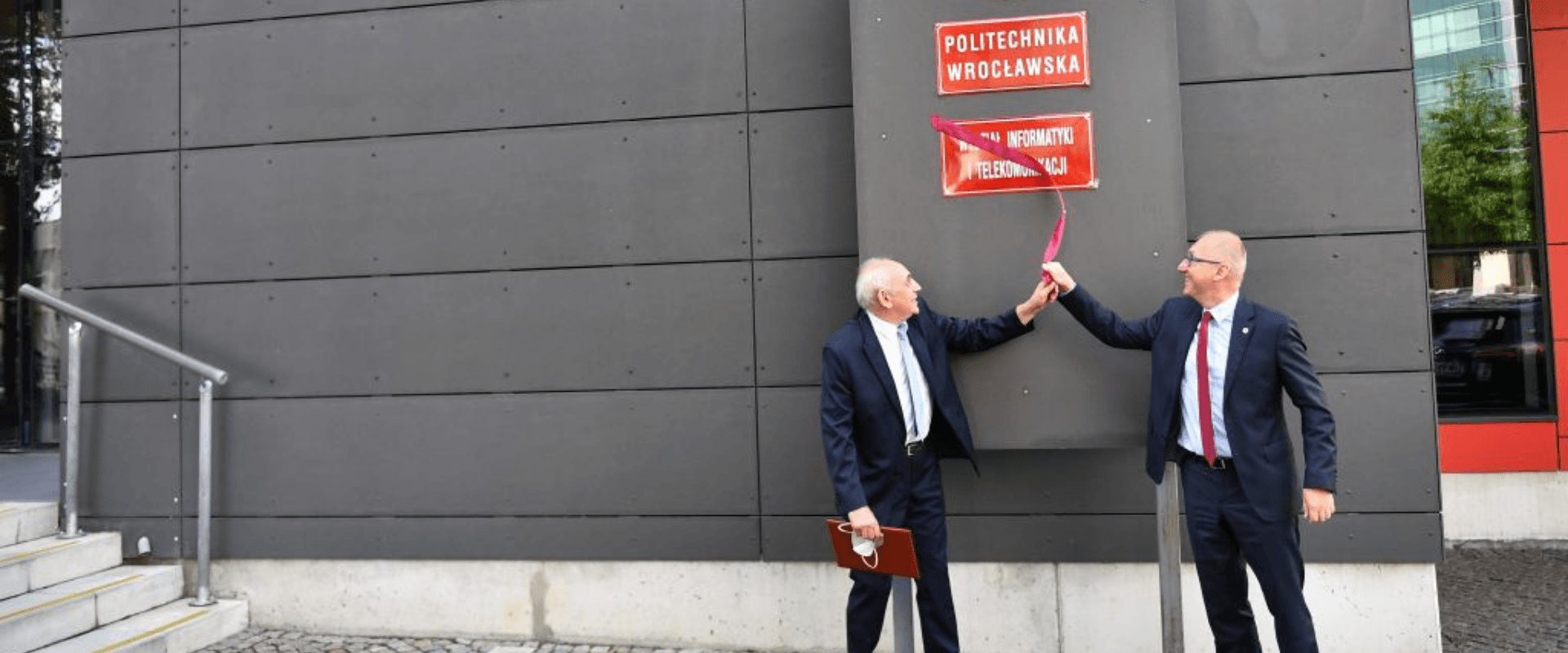Three new faculties at Wroclaw University of Technology

Three new faculties have officially appeared at the Wrocław University of Technology: Computer Science and Telecommunications, Management and Electronics, Photonics and Microsystems. What will their structure look like and what will change for students?
Eight departments, twelve faculties, 400 academic teachers and 5 thousand students count the Faculty of Information Technology and Telecommunications (WIT). It is not only the largest faculty dealing with IT and telecommunications in Poland, but also the largest faculty at the university.
- Professor Tadeusz Więckowski came to me with the idea of creating a faculty combining computer science and telecommunications departments when I started my term of office. The work on its establishment lasted a year and I am very grateful to all the people who were involved in this process - says Prof. Arkadiusz Wójs, Rector of the Wrocław University of Technology.
The new faculty will conduct research in fast-growing fields of computer science that are related to Industry 4.0. It comprises eight chairs that are centred around the discipline of Computer Science and Telecommunications. To date, they have operated in three faculties: Electronics, Computer Science and Management and Fundamental Problems of Technology.
Information Technology Automation Systems
- It is worth noting that the faculties have not only been transferred from other faculties, but also a completely new one has been created - Informatics and Automation Systems. We educate not only in Wroclaw, but also in two branches of our university in Lower Silesia: in Walbrzych and Jelenia Gora. We can already say that as far as the faculties are concerned, we cover the whole range of the industry related to IT and telecommunications - emphasized Prof. Tadeusz Więckowski, the rector's plenipotentiary for the organization of WIT.
All persons who have so far studied at the faculties that were included in the new faculty, as well as persons who recruited for them during the current recruitment process, from now on are students of the Faculty of Information Technology and Telecommunications.
Humanities and photonics and microsystems
The Department of Humanities and Social Sciences was created as a result of the liquidation of the Study of Humanities and Social Sciences. As a result, some of the administrative and scientific staff will move to the buildings of the Faculty of Management, while the rest will remain in the building on Szczytnicka Street. Didactic courses in humanities, social and pedagogical subjects for students from all fields of study will be implemented without changes.
The present Faculty of Electronics, Microsystems and Photonics will be transformed into the Faculty of Electronics, Photonics and Microsystems. The new unit will bring together departments from the existing W12 and the Faculty of Electronics, concentrated in the discipline of Automatic Control, Electronics and Electrical Engineering. The faculty will employ 255 researchers and administrative staff.
- After the changes, the same modern research and teaching aspects will still be present at the faculty, although in an extended, often interdisciplinary scope, which meets the needs of knowledge-based economy and digital society - says Prof. Rafał Walczak, dean of the Faculty of Electronics, Photonics and Microsystems.
Students of these courses, of which there will be ca. 2.5 thousand after the changes, will automatically become students of the Faculty of Electronics, Photonics and Microsystems from 15 September.
